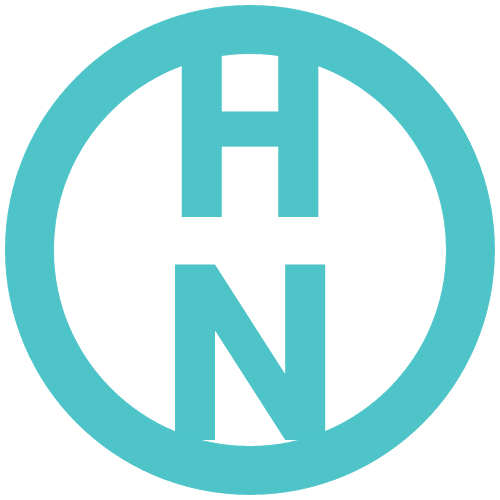Thank You Nat Eliason
huh

Or how I got inspired to actually try
(Originally titled “Nat Eliason’s fkn awesome)
So, I recently got into writing. When I say that I don’t mean that I just started writing, I’ve loved to write for as long as I can remember (which feels weird to say but it’s true), but I just started writing about topics that interest me and posting online. This has been a weird experience but I’m enjoying it a lot.
For the past few days I’ve been reading some of Nat Eliasons essays. I first stumbled onto his website back in (I can’t say back in, I’m 20 years old) a few years ago but only read a couple of things. I got the Substack app yesterday and looked up some of his essays to take as inspiration for my own. I think they have changed something for me. I really enjoyed reading them. Now, I have read blogs and articles online before but it would usually be because I was searching for an answer to something or a new perspective on a problem I had (a lot of Mark Manson, he’s obviously great too, I’m subbed to his newsletter).
When reading some of Nat’s writing I just found it really personal and real, but most of all relatable. I felt inspired. A lot of the content I saw on his page were on topics I actually found really engaging and more than that, I felt like I wanted to write about similar things myself. I felt some sort of a creative spark and saw multiple similarities between him and myself which made me more hopeful for the future. In short, I sort of realised that good writing (and good content) could be created around topics that interested me, in a way that could inspire other people.
So, I guess this is a “Thank you”-letter of sorts, I’m not really sure yet. I think it’s more like lessons I’ve learned during the past few days.
The Bad Goal of $5m by 30
This was one that really hit me because I have created a very similar goal for myself. I’ve done a lot of (for lack of a better word) “soul searching” lately, and I’m trying to figure out what I want to be doing in my life. I’ve read plenty of non-fiction books, most of them “self-help” books and a good number were centered around money. And some of the books, as well as several YouTube videos, have encouraged me to think of a number. A goal number, which he discusses in the essay. This number for me, as of right now, is rounded up to an even 60m SEK which is roughly $5.7m. I came up with this number through some rough calculations, using books like Money: master the game by Tony Robbins and The millionaire fastlane by MJ DeMarco. So, I related strongly with this essay and it really made me think. It also just felt really nice to know of someone else who already has gone through a really similar journey to what I aspire to do. This piece felt like a wiser older brother sharing a word of warning that I’ll take with me.
A quote that really stuck out to me:
If you are on some sort of number-chasing goal, just be careful not to let it override your sense of what you want to do with your life. Experiments in work and life are easier when you’re young and unencumbered. Don’t squander the opportunity.
It made me feel much less stressed that I need to make money now and have everything figured out before I’m 25.
This has also been a theme during the past few weeks where I’ve felt like I need to be proactive and that I need to know exactly what I want to spend the rest of my life doing right now, or at least by the end of the year. I’m also currently reading The pathless path by Paul Millerd which reinforced the message of the essay for me. Maybe I don’t need to be in a rush. Maybe I can work on things that inspire and interest me deeply right now and see where it takes me. Maybe I can find out a general direction for myself before I throw myself in the deep end. Maybe right now can just be a period of discovery and trying things. Maybe that’s okay.
Point the ship in the right direction before you speed up too much.
When the Money’s Just Too Damn Good
Another one of his essays that really struck me, on a similar theme. Basically I really related to the beginning of it where he discusses how he got obsessed with financial independence.
I read all the blogs and books: 4-Hour Workweek, Early Retirement Extreme, The Millionaire Fastlane, Mr. Money Mustache, I Will Teach You To Be Rich, Money Master the Game.
What is funny is I’ve read half of these books just this year and I’m planning to read 4-Hour Workweek next (haven’t got to it yet, I know it's one of the most well-known books in the genre). Knowing that he started out from a similar place and then actually, through some twists and turns, managed to create the work he wanted for himself. Again, this just gives me a lot of hope.
On top of that, because I, myself, am inspired by his content, because it really connected with me, I’m more confident than I’ve been since I started my writing journey that I can inspire someone else, someday. That makes it all seem worthwhile to me. It gives me drive. A lot of things I see and read online don’t make me feel this way.
Instagram and actually creating value
To me, a lot of the content I have been consuming feels hollow. It isn’t inspiring and often doesn’t actually help me in a way that is satisfying. This, in turn, made me uninspired to create similar content.
An example is with my newly started public instagram page. My intention was for this page to revolve around things that I’m actually interested in. I only post the occasional picture on my personal page but with this new one I felt excited as to being able to share with the world things that make me excited. I looked around for content in the sort of self-education/sports/life-advice/philosophy niche made by people similar to me in age and interests. I found some content that I liked and would say was good but most of it felt like nothing. It was a lot of ‘Work hard’ type content or basic productivity common knowledge (which I, briefly, tried posting as well).
Don’t get me wrong, most of the content was well made but a lot of it just didn't connect with me nor felt objectively helpful to people in general. This made me unmotivated to continue with my own posts. My excitement was gone. It therefore felt good when I found Nat’s instagram with mostly book content (which I had been thinking of starting to create and actually liked consuming too). It felt amazing. I could see that there was an audience for this type of content too and I briefly felt a sense of the road ahead. I felt like there was a path I could follow. I’m now not only excited about what I can do with my new instagram (I have 10 followers now! Not to brag) and perhaps with a Youtube channel as well, something I’ve been interested in for a while now.
This comes with its own set of fears, of course, but knowing that there is value that can be created, that I can make something good, something useful, feels so liberating that I can’t think of much else right now.
How to Get Over the Fear of Creating Things
This essay truly mitigated my fears around creating content online. I believe wholeheartedly in the message that the fear doesn't ever go away but that you get used to it. In my short time trying this writing thing my fear has subsided tremendously. Most of it went away after publishing my first post.
The tricks he wrote on making the process easier were also great. I particularly liked the one about pretending the people seeing your work aren’t real. This relates to something (I think) I heard James Smith say on the Modern Wisdom podcast (great episode). To paraphrase, he basically said to treat social media like a game. To not make it real. And I like that. It makes the whole thing seem so much more approachable and much less scary. If it’s all just a game and the people aren’t real you can try new things, fail, and try again and not feel like it really mattered (which it actually didn’t). And if someone would have something bad to say you can use the third and fourth tricks that Nat brings up.
that’s the third trick: you have permission to erase the existence of anyone who even mildly irks you. Block, ban, unsubscribe, mute, hide their comments, and take joy in pruning the weeds out of your digital garden.
The fourth trick is perhaps a bit cruel. Still, I find it helpful anyway: remember that anyone who is secretly making fun of you is just a sad jealous lonely loser who hates their job, life, is having no sex, and will die horrendously empty and unfulfilled. Why would you care if they’re making fun of you? If anything, you should pity them.
The last one’s sounds harsh but is probably true. If you don't think so, ask yourself if you’ve ever left a negative comment on someone else's page. What kind of person would actually do that? Even if I would actively dislike the content, if it was horrendously bad, I don’t think I would ever comment on it. There’s no reason to.
So, I’m wasn’t really sure where I was going with this essay but it felt good to write it. It made me put words to some of my thoughts, made me hopeful for the future and most of all; excited to write. After reading these articles I know feel more certain that I can create something worth reading someday and that the path that I’m on doesn’t have to be totally clear to me right now.
One of my highlights from The pathless path supports this **(get Readwise if you haven’t).
Callard argues that the aspirant’s understanding of the value of their pursuits “is characterized by a distinctive kind of vagueness, one she experiences as defective and in need of remedy.” Learning to exist with this vagueness is vital, especially at the earliest stages of making a change. It’s worth it though, because as Callard says, what is really at stake is you are “learning to see the world in a new way.”
I hope this could help you in som way. To Nat, if you ever read this; Thank you for the inspiration! At the right time, too.
I’m extremely grateful, if you can’t tell.
//
PS: Someone please teach me how to use semi-colons. I’m just kind of winging it at this point.
